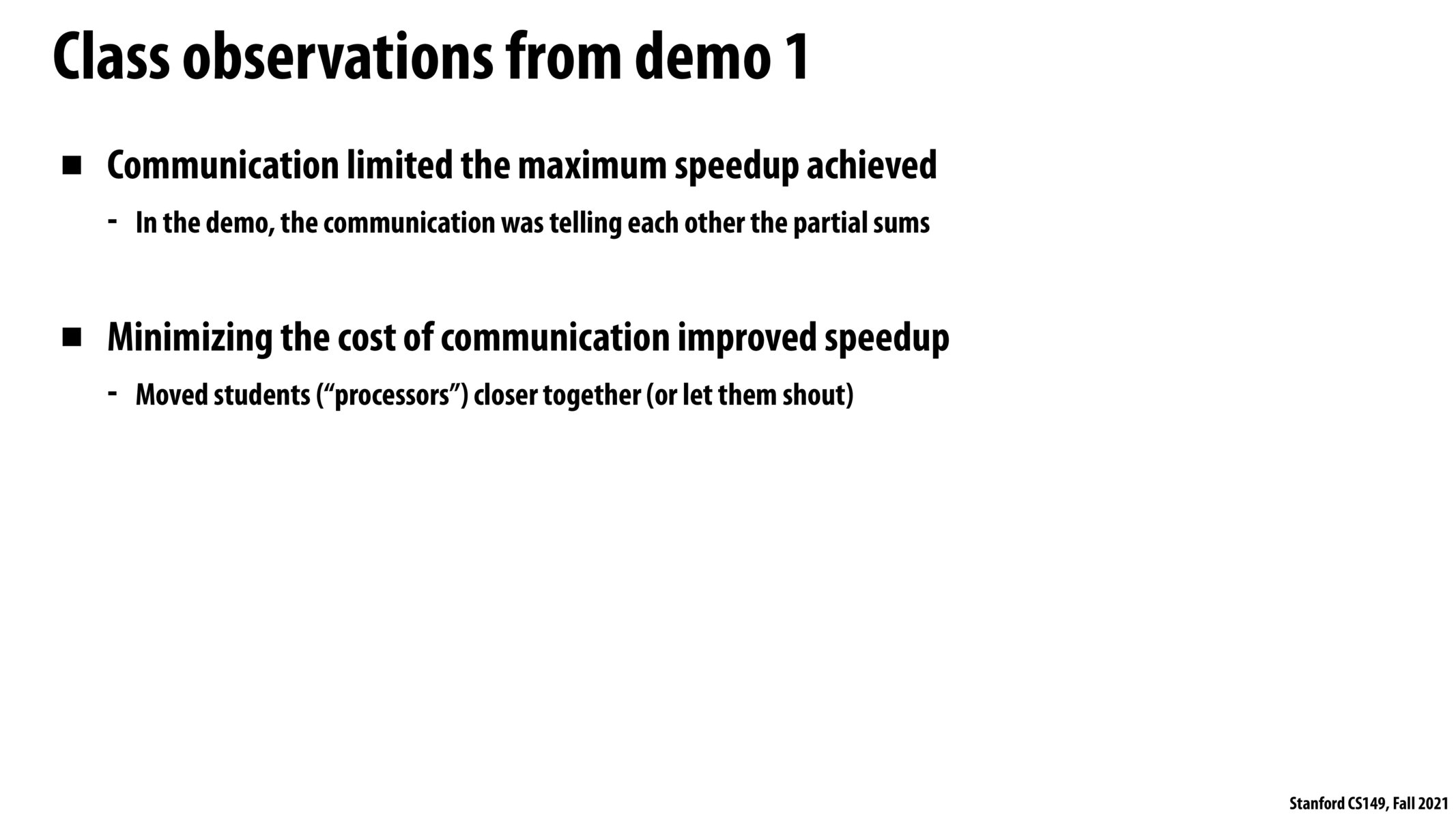


Also seems like another factor is the task itself. e.g. if the task was to add 1,000 numbers, in the context of the demo, we would be closer and closer to achieving the 2x speedup because the time it takes to communicate now is much more irrelevant.

(re: student1) I think the reason for moving students closer together had to do with the idea of colocation which relates to the fact that physical proximity can speed up communication i.e. the propagational delay of signals over a network is in part affected by distance as are electrical signals over wires and gates in hardware. One analogy to the demo you could think about is the memory hierarchy - the register file within a CPU offers the fastest form of storage (essentially one form of communication), while as you move down the memory hierarchy from cache, to main memory, to disk storage and to remote storage, the storage becomes further away from the CPU and magnitudes of order slower as a result.

@liana yup, that's the way to think about it. Though sometimes it does not hold. In 140, we learnt that sometimes network RPC reads can happen faster than local disk reads. A page maybe readily available in a distributed cache, but would have to be read from disk upon a cache miss in a local system. This cache page lookup, eviction, read from disk block storage (which again is a cache on disk and can miss and therefore would need more cache operations) into virtual memory - all could take more time than a remote read from the same page available in a distributed cache across the network. So, we quickly learnt that nothing can be taken for granted in systems engineering. :)
Please log in to leave a comment.
I was a little confused by why moving students closer together could reduce the cost of communication. Will this example be better: initially students could see each other but are muted. This increase the communication cost (have to communicate via gesture or through chat). Later, allowing them to be un-muted probably lead to a speedup.